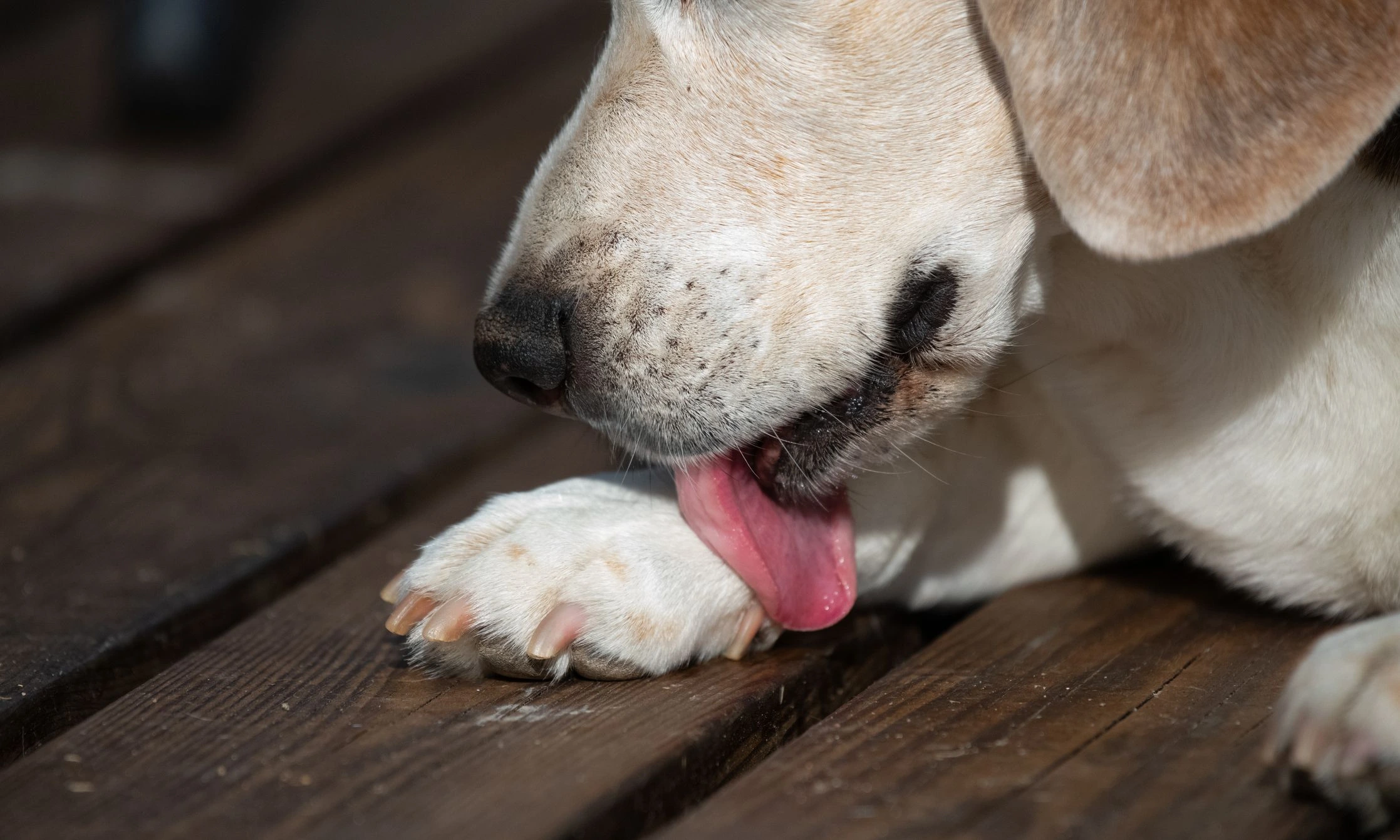Many dog owners have observed their furry friends licking their paws frequently. While this behavior may seem innocent or routine, it can sometimes indicate underlying issues that require attention. Understanding why dogs lick their paws can help you identify any potential health problems and ensure your pet's well-being. Here are some common reasons why dogs engage in this behavior:
1. Grooming and Hygiene
Dogs naturally groom themselves as part of their daily routine. Just like cats, they may lick their paws to keep them clean and free from dirt, debris, or parasites. This behavior is especially common after walks or outdoor play, as dogs may pick up mud, grass, or other substances on their paws. Licking helps them remove these unwanted materials and maintain good hygiene.
2. Allergies
Allergies are a significant cause of paw licking in dogs. They can be triggered by various factors, including environmental allergens like pollen, dust mites, mold, or certain foods. If your dog is allergic to something in their environment or diet, they may develop itchy or inflamed skin, leading to excessive licking as a way to relieve discomfort. Allergies may also cause other symptoms such as redness, swelling, or rashes between the toes.
3. Injury or Pain
If a dog licks their paws excessively, it may indicate an injury or pain in that area. Cuts, scrapes, or foreign objects lodged in their paws can cause discomfort, prompting your dog to lick the affected area to soothe the pain. Inspect your dog’s paws for any signs of injury, such as swelling, bleeding, or sensitivity. If you notice any of these signs, consult your veterinarian for an evaluation.
4. Boredom or Anxiety
Just like humans, dogs can develop habits when they are bored or anxious. Paw licking may become a compulsive behavior in dogs that lack mental stimulation or physical exercise. If your dog is left alone for long periods or doesn’t receive enough playtime, they may resort to licking their paws as a way to cope with boredom or anxiety. This behavior can become a self-soothing mechanism, leading to excessive licking over time.
5. Skin Conditions
Various skin conditions, such as dermatitis, fungal infections, or hot spots, can cause itching and irritation in dogs. If your dog is suffering from a skin condition, they may lick their paws excessively to alleviate the discomfort. Skin infections can also lead to redness, swelling, and odor. If you suspect your dog has a skin condition, it’s essential to seek veterinary care for proper diagnosis and treatment.
6. Habitual Behavior
Sometimes, dogs lick their paws out of habit. If they start licking their paws for any reason—be it grooming, allergies, or boredom—they may continue to do so even after the initial cause is resolved. This habitual licking can become ingrained, making it challenging to break the cycle. In such cases, it may be helpful to redirect their attention to other activities or provide interactive toys to keep them engaged.
7. Nail and Paw Care
Dogs may lick their paws as part of self-care, especially if their nails are too long or if there’s an issue with their paw pads. Overgrown nails can cause discomfort and lead dogs to lick their paws to alleviate pressure. Regular grooming, including nail trimming and paw pad maintenance, can help prevent these issues and reduce paw licking.
Conclusion
While paw licking can be a normal behavior for dogs, excessive licking may indicate underlying issues that require attention. As a responsible pet owner, it’s crucial to monitor your dog’s behavior and identify any changes that could signal discomfort or health concerns. Regular veterinary check-ups, proper grooming, and a balanced diet can help maintain your dog’s health and reduce paw licking behaviors.
Takeaway Tips
- Inspect Your Dog's Paws: Regularly check for injuries, swelling, or foreign objects.
- Manage Allergies: Consult your vet if you suspect allergies are causing paw licking.
- Provide Mental Stimulation: Engage your dog with toys and activities to reduce boredom.
- Maintain Grooming: Regularly trim nails and groom your dog’s paws to keep them healthy.


